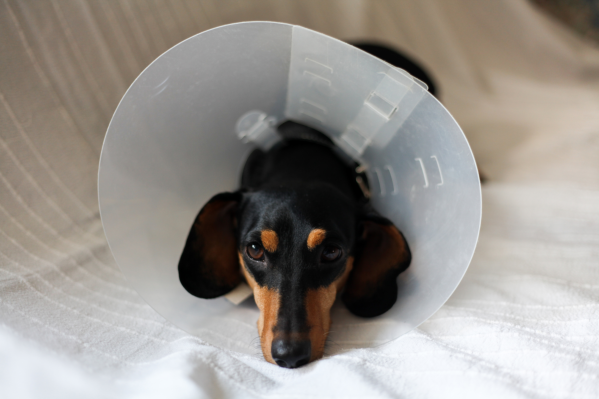Neutering has become the norm for most dogs and cats in the U.S.
Removing the animal's reproductive organs has its benefits, and many veterinarians will recommend the procedure for your furry friend.
On the other hand, there are also some risks involved, so the decision of whether or not to neuter or spay your pet should be discussed with and informed by a veterinarian. They can help you weigh the pros and cons and make a responsible decision about neutering, depending on factors such as breed, age, lifestyle, and health history.
With that said, here are some general benefits and risks to neutering your four-legged family member.
Benefits of neutering:
Population control—minimizing the number of dogs and cats without homes
Prevents unwanted pregnancy
In some cases, can minimize aggressive behavior in males
Minimizes problematic secondary sex characteristics like roaming, spraying, marking a territory, and some forms of property destruction
Can reduce the risk of hormone-related diseases
Risks of neutering:
Certain breeds may be more likely to develop joint problems, hip dysplasia, and certain cancers.
It’s important to note here that reducing the likelihood of these problems is something that pet parents have more control over than one may think, regardless of if their pet is neutered or not. If you avoid overfeeding your pet and your pet does not become overweight, that will have a more significant impact on your pet's likelihood to develop a joint issue than any other factor within your control. The role of being overweight in these conditions is far more significant than anything else. The second largest factor affecting joint health is the genetic predisposition: hip dysplasia, CCL disease, elbow dysplasia, and conditions that the dog is born with have a huge impact on joint health. The correlation between neutering and joint problems is just that—a correlation, not causation.
Anesthesia and surgery can result in complications, however, although the risks of anesthesia weigh heavily on the minds of pet parents, the actual risks are very small.
At the end of the day, the scientific research indicates that the benefits of neutering far outweigh the risks.
So how much does it cost to neuter a dog or cat? There are a few factors at play.
How much does it cost to neuter a dog or cat?
Pet parents can typically expect to pay between $160 to $220 to neuter a dog or cat, however, the cost of the procedure largely depends on where you live and what clinic you choose.
Based on nationwide veterinary data we've collected, here are the typical ranges by region:
South
West Virginia, North Carolina, South Carolina, Georgia, Florida, Oklahoma, Texas, Arkansas, Louisiana, Kentucky, Tennessee, Mississippi, Alabama
Average cost of spay/neuter: $160-$190
West
Idaho, Montana, Wyoming, Nevada, Utah, Colorado, Arizona, New Mexico, Alaska, Washington, Oregon, California, Hawaii
Average cost of spay/neuter: $175-$220
Midwest
Wisconsin, Michigan, Illinois, Indiana, Ohio, Missouri, North Dakota, South Dakota, Nebraska, Kansas, Minnesota, Iowa
Average cost of spay/neuter: $160-$200
Northeast
Maine, New Hampshire, Vermont, Massachusetts, Rhode Island, Connecticut, New York, Pennsylvania, New Jersey, Delaware, Maryland, District of Columbia, Virginia
Average cost of spay/neuter: $160-$200
Get the facts about neutering & spaying
The vet team at Pawp is here to help answer any questions, whether you have a new puppy you need to neuter or a question about post-operation care.
